Our Science Your Health
Series 02: Liver Metabolism & Vitality
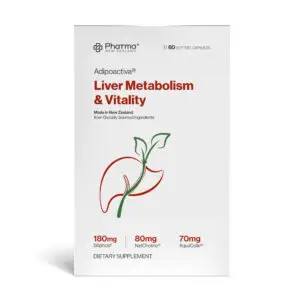
The Full System: How Phatma® Liver Tonic Combines It All for Daily Defense
The problem with most liver supplements isn’t what they include—it’s how they’re designed. Too often, products just pile on herbs, antioxidants, and a few buzzword nutrients, hoping something will stick. But the liver doesn’t respond to random.
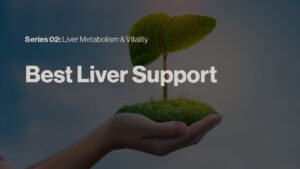
Why “Daily Liver Support” Matters More Than Occasional Detox
The liver doesn’t store up toxins waiting for a cleanse day. It detoxes all day, every day, whether you’re aware of it or not. So the real question isn’t “when should I detox?” It’s: what are you doing every day to support the system that’s always working for you?
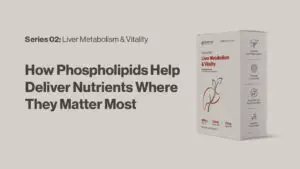
How Phospholipids Help Deliver Nutrients Where They Matter Most (Especially to Your Liver)
We’ve all seen ingredient lists full of impressive-sounding actives: turmeric, milk thistle, glutathione, coenzyme Q10… but here’s the real question:How much of it actually reaches your liver cells? The truth is, many powerful nutrients in your liver supplement are poorly absorbed on their own—especially fat-soluble compounds like silybin, curcumin, or
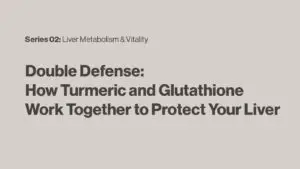
Double Defense: How Turmeric and Glutathione Work Together to Protect Your Liver
Every day, your liver is quietly at war—not with external enemies, but with free radicals produced from simply doing its job. Metabolizing alcohol? Free radicals. Breaking down toxins in Phase I? More free radicals. Processing hormones, fats, or even certain medications? You guessed it—oxidative stress everywhere.

Understanding Choline: The Missing Piece in Most Liver Detox Plans
It’s easy to overlook choline. It doesn’t have the glamour of turmeric, the antioxidant buzz of glutathione, or the herbal mystique of milk thistle. It doesn’t even sound that interesting. But when it comes to liver health, choline is the one thing most people don’t realize they’re missing—until the signs

What Makes a Liver Supplement Actually Work?
You’ve probably seen them on store shelves: dozens of “liver detox” supplements, all with long lists of ingredients and bold promises. But let’s be honest—how many actually work?
The truth is, a good liver formula isn’t about how many ingredients are crammed in—it’s about how well they work together,
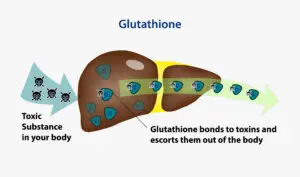
Why Glutathione Is Called the Body’s Master Antioxidant
Probably not often—yet this quiet, 1.5-kilogram organ is working 24/7 behind the scenes to keep your body in balance. From detoxification to digestion, fat burning to hormone processing, the liver plays a central role in your overall health and vitality. In this post, we’ll break down what the liver actually
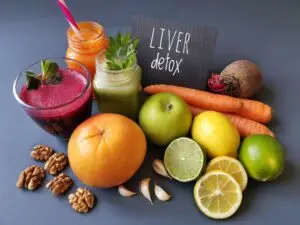
The 2-Phase Liver Detox System Explained and Why Balance Matters
The key isn’t boosting Phase I or II independently—it’s keeping them in balance. If Phase I outpaces Phase II, you get buildup of harmful intermediates. If Phase II is sluggish, toxins aren’t cleared efficiently. What you want is a coordinated rhythm, like a well-run kitchen: one station preps the ingredients,
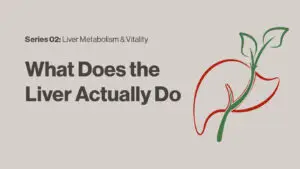
What Does the Liver Actually Do And Why You Should Care
When was the last time you thought about your liver?
Probably not often—yet this quiet, 1.5-kilogram organ is working 24/7 behind the scenes to keep your body in balance. From liver detoxification to digestion, fat burning to hormone processing, the liver plays a central role in your overall health
Series 01: High-purity Fish Oil

What Is rTG Fish Oil—and Why It’s the Best of Both Worlds
If you’ve tried fish oil before but never felt a difference, the problem might not be the dosage—but the structure. Most people don’t realize that how your omega-3 is structured affects how your body absorbs it. Some forms pass right through your system. Others actually get to work. That’s where

What Is EE Fish Oil—and Why It Was a Necessary Step Toward High Purity Omega-3
If TG fish oil was nature’s original form, then Ethyl Ester (EE) fish oil was the industry’s scientific answer to a growing problem: Natural omega-3s weren’t strong enough. As research advanced, it became clear that most TG fish oils simply didn’t contain enough EPA and DHA to match the doses

What Is TG Fish Oil—and Why It’s No Longer Enough
TG fish oil has long been viewed as the “natural” form of omega-3. But in recent years, it’s become clear that natural doesn’t always mean effective, especially when you’re looking for measurable health benefits. This article takes a closer look at what TG fish oil actually is, how it works,

Fish Oil for Dogs?
We recently got an email that said something like this: “Hi there—I’ve been taking your fish oil for a few months now and I love it. But I was wondering… can I give it to my dog? He’s part of the family, and I want him to get the same

How High-Purity Fish Oil Is Made: The Science Behind Purity
High-purity fish oil, with omega-3 concentrations exceeding 90%, is a product of meticulous scientific processes and advanced technology. Achieving such levels of purity requires precision, innovation, and strict quality control. From purification to encapsulation, every step in the production process ensures the fish oil remains safe, effective, and fresh.
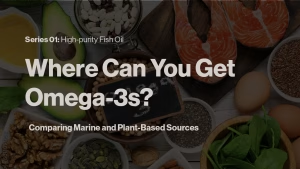
Where Can You Get Omega-3s? Comparing Marine and Plant-Based Sources
When it comes to omega-3 fatty acids, not all sources are created equal. While both marine and plant-based foods can provide omega-3s, the type and bioavailability of these essential fats vary greatly. So, which source is best for you? Let’s dive into the differences.

What Are Omega-3 Fatty Acids, and Why Are They Essential for Health? Discover the Benefits of Fish Oil NZ.
Omega-3 fatty acids are often hailed as one of the most important nutrients for health, but what makes them so essential? To put it simply, these fats are critical for many bodily functions, yet our bodies cannot produce them on their own. Unlike other nutrients, omega-3s must be obtained from
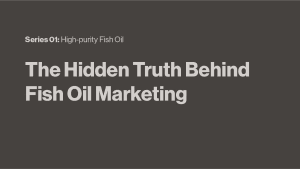
High Purity Fish Oil Omega-3 The Higher the Better?
Many consumers focus on how much Omega-3 per serving a fish oil contains, but purity is the real game-changer when it comes to health benefits. Purity determines how much EPA
(Eicosapentaenoic Acid) and DHA (Docosahexaenoic Acid) your body absorbs—not just the total amount listed on the label.

Why IFOS Certification Matters More Than Standard Quality Checks
When choosing a fish oil supplement, many consumers look for vague claims like “high quality” or “triple-strength.” However, not all fish oils undergo the same rigorous testing, and this is where IFOS (International Fish Oil Standards) certification makes a real difference.

